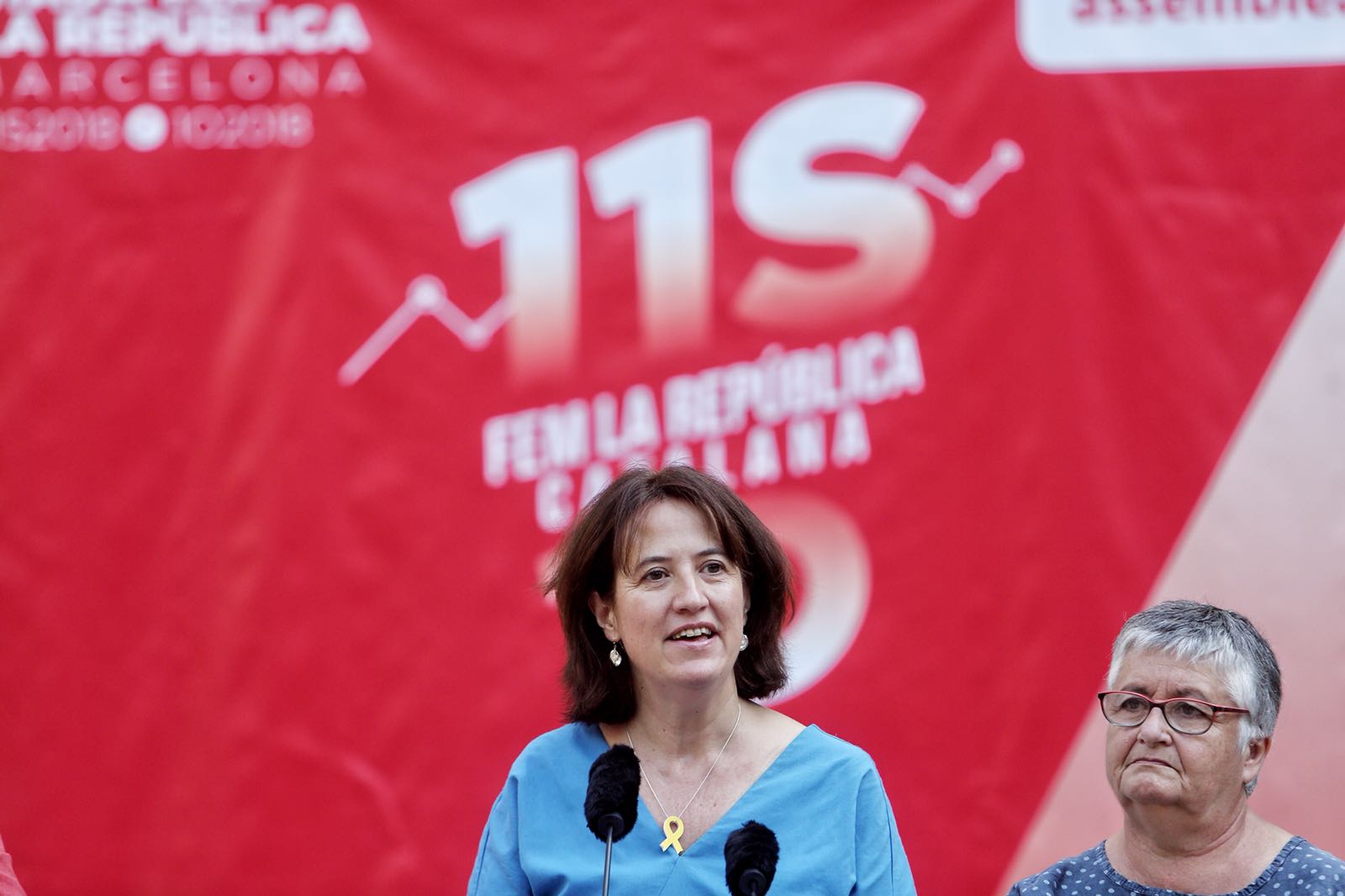"The only far-right movements we have in Catalonia are unionist and almost always nostalgic for Franco". That's the response from Elisenda Paluzie to an article published in The Economist which said that the Catalan independence movement is sometimes identity-based and borders on racism. In a letter to the editor published in the latest issue, the president of the Catalan National Assembly (ANC) notes that last year, Barcelona saw Europe's largest march in support of welcoming refugees, with half a million protesters.
"We see the Catalan language as a tool of integration in our multilingual society. We want to normalise the use of our language, which has been persecuted for centuries and still does not have an official status throughout Spain", says Paluzie, noting that it isn't even permitted for use in the Spanish Congress. "In Belgium", she says, by way of comparison, "80,000 German-speaking inhabitants have their language fully recognised, whereas 10m Catalan-speakers continue to be treated like second-class citizens".
Paluzie also disputes the description of the independence movement as having "an undertone of intimidation and intolerance", "particularly as more than 1,000 Catalan citizens are being prosecuted for organising the referendum on independence". This, she notes, at the same time as "nine peaceful politicians and civil-society leaders have spent up to ten months (and counting) in prison without trial and seven have been forced into exile".
"By trying to crush the referendum, the Spanish state has ridden roughshod over fundamental constitutional liberties such as the freedoms of assembly, speech and the press," the president of the ANC writes.
In her conclusion, Paluzie also denies that the rise of alternative and pro-independence political movements in Catalonia is a sign of "rancour". Instead, for her, "it demonstrates a profound disagreement over how Spain has been managed over the past few decades".
"We Catalans favour a modern, dynamic economy with a fairer distribution of wealth and we are willing to contribute to poorer regions in Europe, including the Spanish ones, but in a transparent and fair way," she writes.

